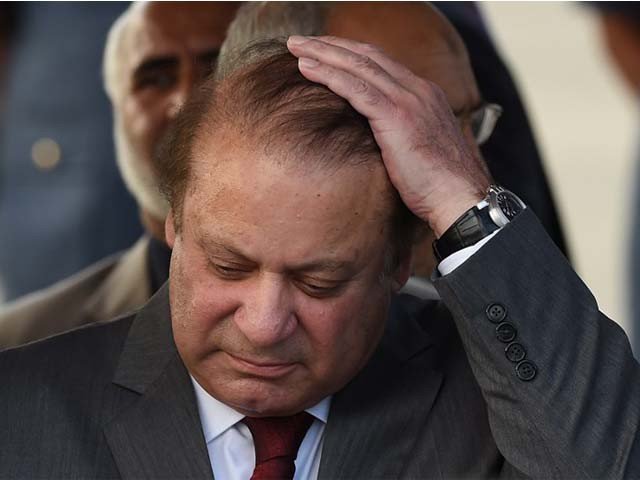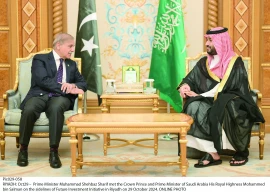
The petition was filed against the June 5 order of the accountability court stating that all three references can't be clubbed due to technicalities like the fact that the deposed premier didn't record his statement under Section 340 (2) CrPC making it difficult to club the references.
Nawaz challenges trial court order in IHC
The National Accountability Bureau (NAB) filed the references against the Sharif family following the 2017 Supreme Court verdict ordering the proceedings to be wrapped in six months. The SC has since granted three more extensions to the court, but much of the proceedings are still pending.
On June 5, Haris submitted the petition on Nawaz's behalf. On June 8, Nawaz argued that there is no basis to pass simultaneous verdicts in the three references, as he challenged the accountability court order in the IHC. Haris asserted that instead of quick disposal, delaying all three references was the option left to Accountability Court Judge Muhammad Bashir.
Subsequently, IHC’s division bench comprising Justice Aamer Farooq and Justice Mohsin Akhtar Kayani heard the petition on Thursday and served notice on NAB.
Deviating from its earlier stance that all three corruption references filed by the National Accountability Bureau (NAB) against the Sharif family would be decided simultaneously, the accountability court held on June 5 that no such reason existed now.
“The accused has not produced any defence witness in this [Avenfield] reference. He has also not opted to be examined under oath (in the light of) Section 340 (2) CrPC. Therefore, the reason for rendering decision simultaneously on all three references does not exist at present,” Judge Bashir stated in the order.
Subsequently, the court dismissed Sharif’s request to postpone final arguments till evidence was recorded in all three references and NAB prosecutors presented their final arguments against Sharif, Maryam Nawaz and Capt (retd) Safdar as well as Sharif’s sons, Hassan Nawaz and Hussain Nawaz, who are still absconding, in the Avenfield Apartments reference.
IHC takes up petition requesting ban on Nawaz's anti-judiciary speeches
If the accountability court decides one of the three references separately of the other two, the counsel stated, the judge would already have disclosed his mind with regard to not only the accused, common in all three references, but also in respect to facts which are common to all three cases.
If the court goes ahead, he stated, it would be obliged to stay its hand from deciding the other two references as a matter of propriety, equity and fair play.


1719660634-1/BeFunky-collage-nicole-(1)1719660634-1-165x106.webp)

1732276540-0/kim-(10)1732276540-0-165x106.webp)




1724249382-0/Untitled-(640-x-480-px)1724249382-0-270x192.webp)







COMMENTS
Comments are moderated and generally will be posted if they are on-topic and not abusive.
For more information, please see our Comments FAQ